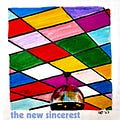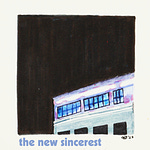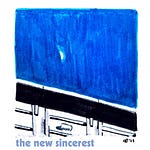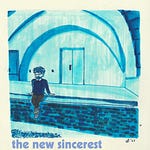After a couple weeks away, The New Sincerest is back at KHOI 89.1fm in Ames, Iowa and on Substack! After the last few shows focused on dream pop and singer songwriter fare, The New Sincerest returns to the dance floor with a focus on the genre of disco and its offshoots (including freestyle and French House).
The yearning, lust, and earnestness of disco has seen multiple resurgences throughout the decades since its inception in the late 1960s. A countercultural movement spearheaded by minority groups, it is a genre primarily interested in expressions of romantic or sexual nature, consistently illuminated from within by the vulnerability required of any kind of music that dares to not just move your feet, not just your body, but your soul as well.
Check the lyrics to the celebratory “Good Times” by Chic, which chronicles a night out with friends at a roller discotheque, camaraderie declared as leverage against a bystander when they choose to be a drag and not participant, all that goodwill obscuring the melancholic chorus line “These are the good times / Leave your cares behind”; the heroes of this disco fairy tale know their time is almost up, Nile Rodgers’ insistent and scratched guitar riffs a steady metronome that, despite the pressure of music’s inherent clock, takes its time stretching out over the track’s eight minute dusty groove. “A rumor has it that it’s getting late”, the most striking lyric on the record to me every time I spin it, was a surprisingly oracular declaration for a song released on June 4, 1979, as only a month and a week later on July 12, 1979, Disco Demolition Night enacted an attempted destruction of the genre as a whole in a symbolic and literal detonation: the Chicago White Sox, in a desperate attempt to draw audiences to their relatively empty stadium after failing to gain their respect and patronage from their season-long funk, collaborated with Steve Dahl, a shock jock (a type of DJ or show host who engages audiences with rage humor or melodramatic performances of opinion), to lower the price of admission to 98 cents as long as the attendees also donated a disco record on vinyl to their cause. As seven disco songs covered the top ten placements of the Billboard Hot 100, seemingly reaching a zenith of cultural appreciation and saturation, vinyl were thrown from the stands like Frisbees, sleek black discs shattering into fractals on the concrete steps or under the feet of protestors dancing on the oppression of marginalized communities; the White Sox began to recognize the enormity of offering a public theatre for racist and homophobic rhetoric and action, eventually forfeiting the game the next day due to disorderly conduct; and Steve Dahl and his compatriots, dressed in army fatigues, approached a crate filled with records and explosives and declared war on disco. 50,000 attendees that night declared war on disco.
This vitriol, so pointed and so gleeful in its mission to silence, feels particularly vicious when leveled at a genre so predisposed and preternaturally inclined to joy, to ecstasy, to uninhibited expressions of self. The debauchery so often projected by conservatives onto disco is rather something of a mirror to that political era; that its maliciousness persists even today, so much so that the Billboard Hot 100 only received its first chart-topper by a non-binary and trans singer it the last couple years (Sam Smith and Kim Petras’ “Unholy”), could argue that the spirit of Disco Demolition Night is alive and well.
But disco’s vehemence, its virility and verve, is just as alive and well, if not immortal. Disco is still everywhere, even after tens of thousands of vinyl records were disposed of in the era when it was not possible to digitally store and archive music: its percussion and grooves disseminated into dance-pop and club music and electronica, it remains the most highly sampled genre in hip-hop, disillusioned strains collided with the punk scenes to colorful and uproarious abandon, and at the dawn of the 2020s, seemed to reach a new apex of pop culture relevance.
This week’s set is a love letter to the disco genre, its celebratory and resistive power, and the inherent impulse to dance.












New Sincerest: 7/29/24